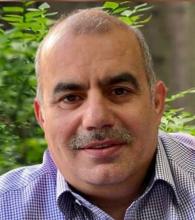You are here
The PKK's dissolution: A calculated move or a genuine path to peace?
May 24,2025 - Last updated at May 24,2025
In a development that caught many observers off guard, the Kurdistan Workers’ Party (PKK) has declared its formal dissolution, bringing an apparent end to its decades-long armed struggle against the Turkish state. While headlines portray this as a possible breakthrough for regional peace, the timing and conditions surrounding the announcement raise more questions than answers. Is this a genuine pivot toward reconciliation, or a strategic maneuver by a beleaguered movement under immense pressure?
The PKK’s announcement did not arise in a vacuum. Years of sustained Turkish military pressure, particularly through cross-border operations such as “Claw-Lock” in northern Iraq, have considerably weakened the group’s logistical capabilities and territorial presence. Moreover, Turkey’s extensive surveillance and drone warfare have left the PKK with few safe havens.
On the geopolitical front, the PKK finds itself increasingly isolated. Labeled a terrorist organisation by both the EU and the US, the group has lost international sympathy. Even within broader Kurdish political circles, especially in Syria and Iraq, competing factions like the PYD may be urging the PKK to scale down its militancy so as not to jeopardize hard-won political leverage.
The PKK’s retreat may create a vacuum in the Kurdish geopolitical landscape. In Iraq, Iran-backed militias could exploit this power shift to expand their influence. In Syria, the YPG, though organizationally distinct from the PKK, may face increased scrutiny from Turkey.
Europe, meanwhile, is placed in a diplomatic dilemma. Should the EU reassess the PKK’s designation if it truly disbands? This could significantly affect Kurdish diaspora activism across European capitals.
The United States must also walk a tightrope, balancing its alliance with NATO-member Turkey against its reliance on Syrian Kurdish forces in the fight against the Daesh terror group.
History cautions against premature optimism. Militant groups have often declared pauses not as a path to peace, but as opportunities to rearm or rebrand. The PKK might be rebranding, transitioning into a civilian political movement by leveraging legal Kurdish parties within Turkey’s parliamentary system. Alternatively, it may be regrouping, using the ceasefire to restructure its fragmented ranks. A further risk is splintering, with hardline offshoots potentially rejecting the ceasefire and undermining any future negotiations.
Several factors could enhance the prospects for a lasting peace between Turkey and the PKK. First, mutual exhaustion after four decades of conflict may prompt both sides to acknowledge the diminishing returns of continued warfare and seek compromise. Second, international mediation, particularly through a US, or EU-backed framework, could provide critical incentives for disarmament, offering political recognition or economic aid in exchange for credible steps toward peace.
Beyond domestic resistance, external interference poses another risk. Regional actors like Iran and Syria, wary of a stable Turkish-Kurdish détente, may seek to undermine negotiations to preserve their own strategic leverage. Unless these challenges are directly addressed, even the most promising peace efforts risk unraveling.
This announcement may be the closest the conflict has come to a peaceful resolution in decades. But let’s be clear, disarmament is not peace. Real peace requires political courage, cultural recognition, and international accountability.
Mahmoud Ali Abu-Rumman is a seasoned expert in financial oversight and environmental governance, with a distinguished career spanning over 30 years in public service, international peacekeeping, and sustainability strategy. A former Colonel in Jordan’s Public Security Directorate, he brings deep institutional insight and leadership experience. His background also includes contributions to United Nations missions and national policymaking in financial and environmental sectors. He currently serves as the Financial Controller at the Jordan Press Foundation (Al-Rai).














Add new comment